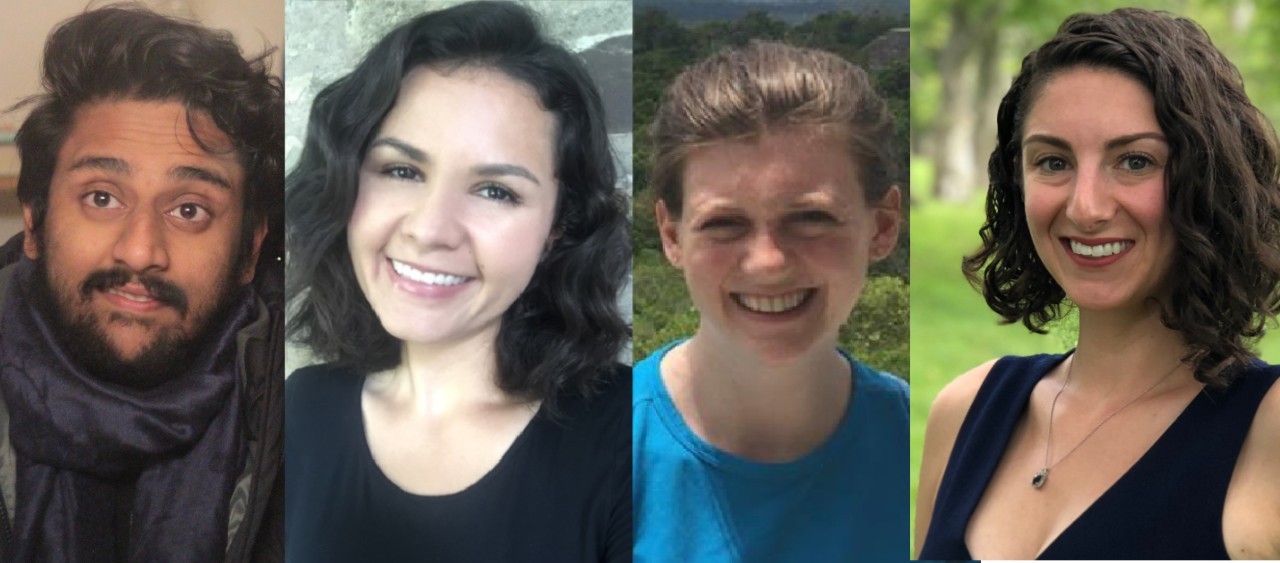New Directions in the History of Science

Well over half the material held at the American Philosophical Society Library & Museum documents the history of science. Its collections run the gamut from A to Z—from astronomy to zoology—with particular strengths in genetics, evolutionary biology, and the life sciences, and growing collections in eighteenth- and nineteenth-century natural history, physics, and the early history of computing.To highlight these materials, in Fall 2019 the Library & Museum launched its pilot program in the history of science.
Join us on Tuesday June 23 at 11:00am EDT for a roundtable conversation with this year’s history of science predoctoral fellows--Prashant Kumar (University of Pennsylvania), Megan McDonie (Penn State University), Gina Surita (Princeton University)--and Emily Margolis, co-curator of the 2021 APS Museum exhibition, Dr. Franklin, Citizen Scientist. They will discuss the broad range of questions and disciplines that make up this field. A Q&A will follow.
About the Speakers
Prashant Kumar is a Ph.D. candidate in the History and Sociology of Science at the University of Pennsylvania and the 2019-2020 John C. Slater Predoctoral Fellow in the History of Science, Technology, and Medicine. His dissertation considers the relationship between networks of astronomical observation and networks of communication under the British Raj in the nineteenth century and shows how crucial Indian labor and vernacular forms of mathematical knowledge were to the operation of the spacetime "grid" laid across India by imperium.
Megan McDonie is a Ph.D. candidate in Latin American history at Penn State University and is a 2019-2020 APS Program in the History of Science Predoctoral Fellow. Her dissertation evaluates how Kaqchikel Maya, Nahuas, and Spanish colonizers created inhabitable spaces among the volcanic ecologies of Guatemala and Mexico from 1519-1775. These individuals pioneered in collecting information and theorizing about the potent forces churning within the earth in order to manage volcanic resources, ash fall, and eruptions.
Gina Surita is a Ph.D. candidate in History of Science at Princeton University and is a 2019-2020 APS Program in the History of Science Predoctoral Fellow. Her dissertation traces the emergence of the field of bioenergetics (the study of energy transformations in living organisms) by weaving together a series of case studies in the history of adenosine triphosphate (ATP) research. It offers a new interpretation of twentieth-century biology by arguing that the metaphor of the “cellular economy,” as deployed by biochemists and cell biologists interested in metabolism and biological energy exchanges, shaped the development of modern biology in ways distinct from the metaphor of genes as “information.”
Emily Margolis received her Ph.D. in the History of Science and Technology from The Johns Hopkins University. Her work explores the cultural, political, and economic significance of space-themed attractions and amenities that proliferated across the southeastern United States in the late 1950s and 1960s. She is the 2019-2021 The Andrew W. Mellon Foundation Postdoctoral Curatorial Fellow at the APS and co-curator of the 2021 exhibition Dr. Franklin, Citizen Scientist.
